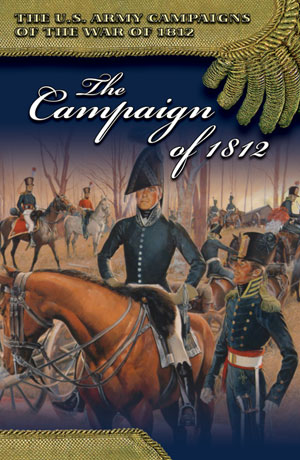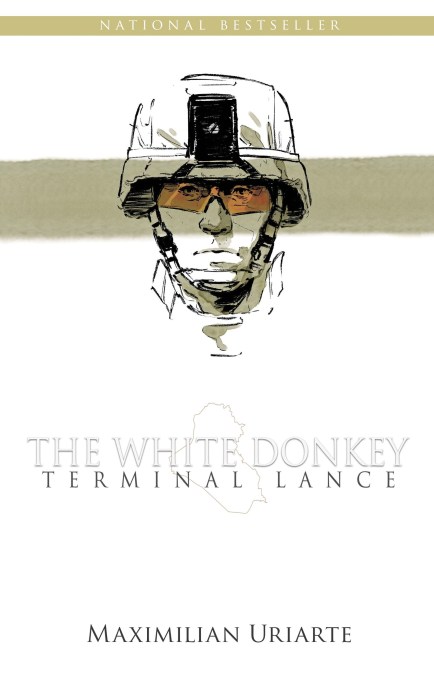.jpg) |
| The Debate of Socrates and Aspasia by Nicolas-André Monsiau. |
We cannot help but see Socrates as the turning-point, the vortex of world history.
—Friedrich Nietzsche, in The Birth of Tragedy (1872), p. 73
I really enjoyed my 'deep dive' into CS Lewis and his fiction during the summer of 2019. I decided to do something similar in the summer of 2020, looking at Socrates & Plato. It turned out to be a more difficult project, not in terms of reading but in terms of getting my head around the subject. In the end, I limited myself to Socrates, looking at Plato beyond his role as Socrates' recorder was just too much for a summer. My plan was to read some of the dialogues, some of Aristophanes' plays in which they appear, and some biographies. I intended to focus on Socrates and Plato as people, their thinking on rhetoric, and reexamining my past in-depth readings in the dialogues, which were 30 years ago.
I started my Summer of Socrates by reading Rosamond K Sprague's edition of Plato: Laches and Charmides, which I still had from my days as an undergrad. I'd forgotten how much I enjoyed Laches. Charmides was more shocking, as I had forgotten how blatant it is about Socrates'
homosexuality (the dialogue is framed as Socrates trying to seduce a young man noted for his beauty - but note other sources argue Socrates restrained himself from sex). Also, it takes place at a palaestra, reminding me that, somewhat ironically, Socrates and Plato were both jocks.
[Edit: The homosexuality isn't shocking. What shocked me was how bawdy and blatant it was, the "locker room" of it. It would have been equally shocking if Socrates was drooling over a young woman. This level of bawdiness wouldn't be out of place in one of Aristophanes' plays, but just felt odd in a Socratic dialogue - which undoubtedly says something about me, because I had read this dialogue before and I should not have been surprised by it.]
Rereading these really highlighted a couple things for me. One, is that language impacts this even more then usual. I compared two different translations, an old, 19th century translation and Sprague's much newer one. There were definite differences that impacted Plato's meaning. The modern translation made the sexual connotations of Socrates' interest in Charmides more apparent. I would like to know more about the exact Greek word used for 'courage' and what shades of meaning it has. In Charmides, the virtue being defined is usually translated as 'temperance', but the actual Greek word is 'sophrosyne' which clearly means much more then temperance or even moderation. In both cases it is clear the goal is not to define that one virtue, but to define Virtue itself.
I was also struck by how much lack of context left the works untethered historically. The 'characters' in the dialogues are all historical personages, prominent Athenians whose reputations are supposed to inform our understanding of the dialogue. Nicias was one of the commanders of the infamous Sicilian expedition renowned for his caution. Laches was one of the commanders who lost the Battle of Mantinea. In Charmides, both Charmides and Critias were infamous as members of the 30 Tyrants. None of this is mentioned in either dialogue.
I then turned to another of my old undergrad works, Aristophanes: Lysistrata/The Archanians/The Clouds, translated by Alan Sommerstein. I love Aristophanes' plays, which are earthy, funny, and really help you see how the Athenians were real people (who liked dirty jokes), humanizing them in ways that are often needed as our study of the past can transform them into metaphorical marble statues. Only The Clouds dealt specifically with Socrates, and I'd forgotten how annoyed The Clouds made me, because the Socrates who appears within that work is so utterly different from the Socrates we find in Plato's dialogues, literally espousing opposite opinions. But it is important to see how his contemporaries viewed him.
I turned next to Why Socrates Died: Dispelling the Myths by Robin Waterfield. This work challenged by preconceptions of Socrates and helped me put him firmly back into the context of his life, within Athenian history. It was well written and often convincing. For example, his description of Athenian religion placed the impiety charge of which Socrates was convicted in its proper context, reminding us that religion and patriotism were linked in Athens (it is still dominating our political thought today).
The weakest section of the book was a long digression into Athenian politics and Alcibiades where Socrates barely appears at all. It provides context, but a work on Socrates should not have long stretches with no mention of the philosopher. Waterfield's interesting twist is that he makes a case that Socrates' conviction and execution were, by Athenian standards of the day, justified. It boils down to what one thinks of Socrates' role, if any, in the rule of the the 30 Tyrants. Plato, writing long after the fact, positioned Socrates as a foe of the Tyrants, but in the same source he mentions that many of them were friends and relatives of Plato (and friends and students of Socrates as well). As Waterfield points out, that is hardly a convincing case, and it is easy to see how Socrates could be associated with Tyrants.
Then Waterfield pivots again at the very end, this time to the Thargelia. This reminds us that not only was Athenian society steeped in religion in ways we find difficult to understand (as permeated by religion as modern America is by commercialism) but also that ancient religion was literally blood soaked, even "rational" Athens still practiced essentially human sacrifice (though perhaps it was ceremonial). This ends the work with the idea that Socrates is just a scapegoat, that his trial is similar to the Thargelia if less ritualized.
I found myself with new questions after reading Waterfield's work, I wondered if Socrates SHOULD bear some blame for Alcibiades, Critias, and the Thirty Tyrants. Did his teachings lead some to mass murder? His defenders, Xenophon and Plato, argued after the fact he was not connected to their excesses but obviously biased defenses long after the fact should not be wholly convincing. I tried to deeply rethink my understanding of Socrates -- perhaps he drank the hemlock cup because he knew he deserved it. But perhaps not, as a friend pointed out to me, Socrates' teachings do not really support their actions. In the Meno, for example, he "shows that the non-citizen slave - with the right training - is just as capable of the Socratic method as a free citizen." The more I consider it, the less convinced I am of any of Waterfield's arguments.
The next book in my deep dive didn't help much. Plato's Republic by Simon Blackburn was not a
history at all, but an analysis of Plato's ideas by someone who doesn't really like Plato very much. A useful corrective, as Plato does get more then his share of hero worship but he allowed his own real-world politics into the mix too often.
history at all, but an analysis of Plato's ideas by someone who doesn't really like Plato very much. A useful corrective, as Plato does get more then his share of hero worship but he allowed his own real-world politics into the mix too often.
My final book for the project was The Hemlock Cup by Bettany Hughes. It is the best of the works I've read to date. It is a detailed history that frames the tale with his trial and execution (apparently that is irresistible to his biographers) but what Hughes highlights that Socrates is really 'donut' subject - tons of information available on the people and world around Socrates, but he himself is absent because he left no writings (the parallels with Jesus are striking). In order to counter this absence, Hughes focuses on the archaeology, recreating Athens at each stage of Socrates' life as he would have seen and interacted with it, while inserting the documentary evidence we do have. It is brilliant, a technique I shall have to remember if faced with a similar donut subject myself in the future.
The Hemlock Cup was a very good read, I definitely think I understand Socrates better having read it. It certainly gave me a better perspective and understanding when I turned to the final book in my Socratic 'deep dive': Plato: Five Dialogues: Euthyphro, Apology, Crito, Meno, Phaedo translated by G.M.A. Grube. This is another reread of my undergrad textbooks, and it was interesting reading these dialogue translations after my previous readings.
I was particularly struck by this bit: "Finally, I went to the craftsmen. For I was conscious of knowing practically nothing and I knew that I would find they had knowledge of many fine things. In this I was not mistaken … the good craftsmen seemed to me to have the same fault as the poets: each of them, because of his success at his craft, thought himself very wise in other most important pursuits, and this error overshadowed the wisdom they had." (Plato, Apology, 22.D) This reminds me a great deal of STEM types who assume history or other Humanities are 'easy' and blithely make pronouncements about those areas of studies despite their own relative ignorance.
The biggest takeaway I have from this "deep dive" is a better understanding of my personal ignorance regarding Socrates and Plato, as well our collective ignorance of Socrates character and thoughts. This is known as the Socratic Problem, and it has dogged scholars and philosophers for hundreds of years. Socrates left us no writings of his own, nor any hints of things he wrote that other writers mention. All we have are the writings of a few people who knew him personally. Of these, Aristophanes' comedies are the only contemporary writings. Two of his students, Plato and Xenophon, wrote extensively about him, but they wrote long after he was dead. Thus the "donut" status mentioned above. The broad consensus is that earlier Platonic dialogues are close to Socrates' authentic thoughts, especially when the match what is said of him in other sources. In later writings, like The Republic, Plato is using Socrates as a character to express his own philosophies.
My "deep dive" into Socrates and Plato had shifted quite a bit as I delved into it. First, it was immediately clear the topic was way too huge for one summer of study, even for a cursory examination. So I abandoned Plato to focus on Socrates, who had always fascinated me more. But even Socrates on his own was far to large of a subject, and in the end, after a perfunctory look at his wider views, I was led by the books I read to focus on his place in Athenian politics and society. I didn't come to many firm conclusions -- like so many of mankind's most influential thinkers much of his life remains shrouded in the unknowable -- but I learned a great deal.
Considering that many of mankind's greatest minds have grappled with Socrates and come to no firmer conclusions then I did after my light summer reading exploration, I'm fairly content with my conclusions.
Last summer I was too buried in research and writing to do a "deep dive" on any subject other then my work. But I certainly hope I have an opportunity to do one this summer.
All views in this blog are my own and represent the views of no other person, organization, or institution.



